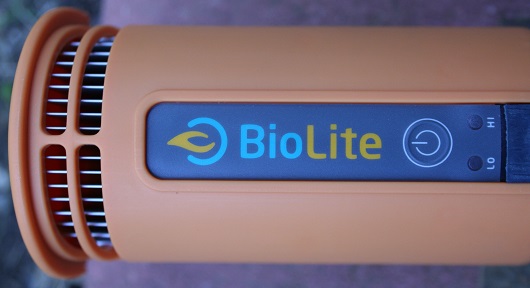Brooklyn Startup: Safer Stoves for Developing Countries

If you blow the right way at a fire, the flames will burn cleaner and more efficiently. It’s a simple concept, but one that a Brooklyn startup is using to address and overcome one of the biggest challenges to health in developing countries.
According to the World Health Organization (WHO), over three billion people globally use open fires, otherwise known as stoves, that burn coal, dung or wood. Doing so, results in exposure to carcinogens such as carbon monoxide, particulates and other pollutants.
Figures show that four million people die annually from cooking on an open fire from lung cancer, pneumonia and other respiratory and heart diseases.
Scientists at BioLite, a five-year-old startup, have launched pilot programs to sell cheap, safer stoves for developing countries including Ghana, northeastern India, and southern Uganda.
The cylindrical product burns twigs and wood, which leads to 90 percent fewer particulate emissions being released into the air. The stove also creates the same amount of heat with 60 percent less wood and only costs $50.
The stove includes a small fan, which funnels air into the stove to make sure the fire gets enough oxygen. By doing so, the flames burn hot, but in a cleaner way. There are also heat panels on the side, which are used to convert some of the heat into electricity.
By targeting rural areas where people are more likely to rely on burning wood as fuel, the company is hoping to address issues such as women’s empowerment and overall health. Because women in rural parts of developing countries are often the ones doing the cooking, reducing emissions can help to improve their health.
The difficult part of the process, however, is delivery. The areas of a country where the stoves can have the biggest impact are often some of the hardest regions to reach. To ensure successful distribution, BioLite implemented a model that assigns an agent to every village. Each agent will go door-to-door, demonstrating to villagers how to work the stove.
To date, the company has sold 4,000-5,000 stoves in India, and scientists hope to sell one million around the world in the next four years. According to BioLite’s website, the stove has helped to produce almost 14 million watt-hours of electricity, avoid over 15,000 metric tons of carbon dioxide emissions, and allow more than 29,000 people to breathe cleaner air.
– Matt Wotus
Sources: BioLite, InsideClimate News, World Health Organization
Photo: Flickr
